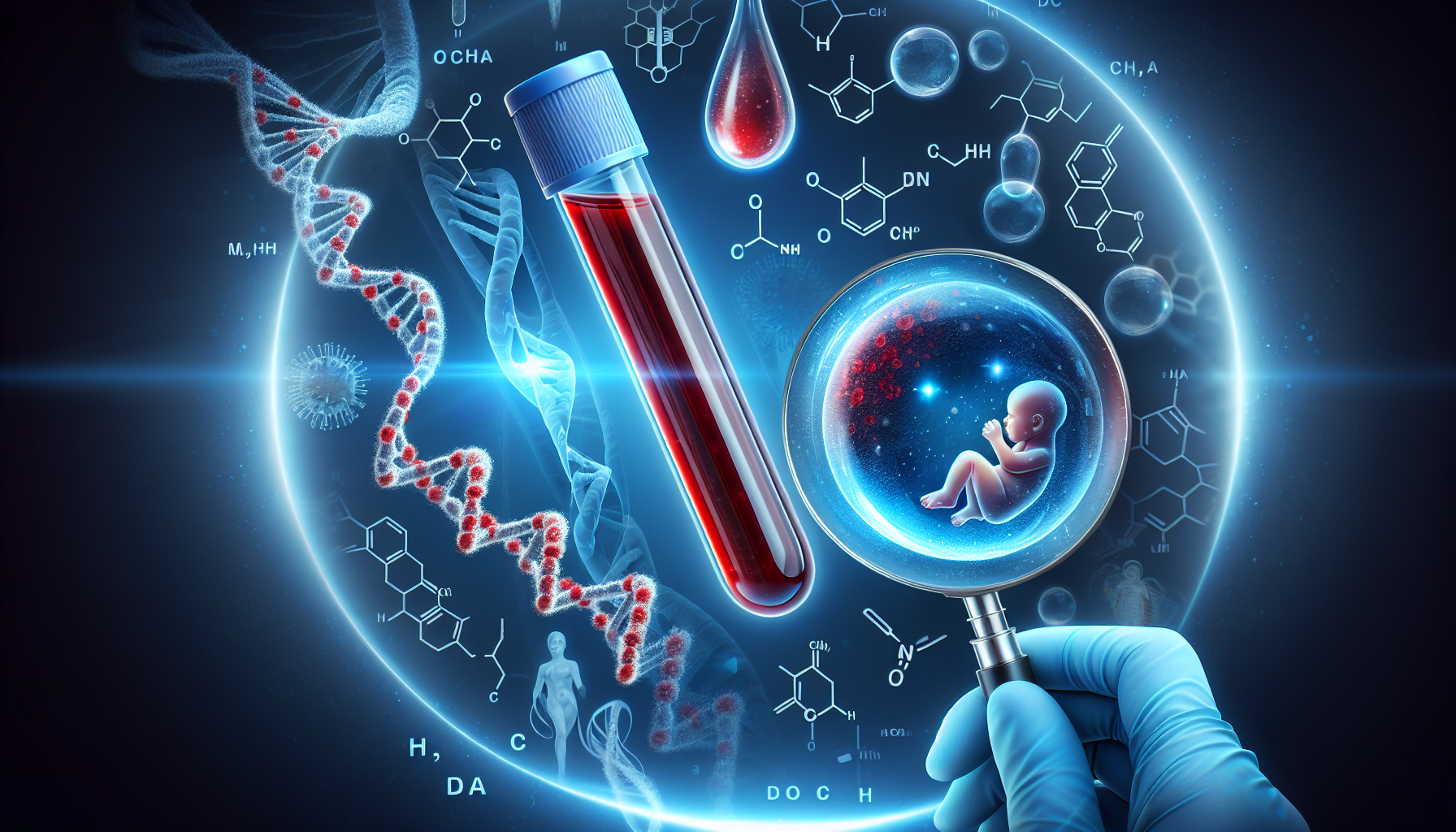Innovative Prenatal Test Identifies Fetal Genetic Disorders Using Maternal Blood
Key Takeaways
- New non-invasive prenatal test detects fetal genetic disorders from maternal blood.
- High accuracy rate comparable to traditional invasive methods demonstrated in large study.
- Advances in single-cell analysis offer safer and more detailed prenatal screening options.
Did You Know?
Breakthrough in Prenatal Genetic Testing
Researchers have unveiled a promising new technology for prenatal tests that can detect fetal genetic disorders from a simple maternal blood draw. This method, developed by Menarini Silicon Biosystems, has shown a high accuracy rate in identifying fetal genomic abnormalities without invasive procedures.
During the 2024 Fetal Medicine Foundation World Congress, experts presented data showing that this non-invasive approach could detect conditions such as trisomies and other genomic disorders with preciseness comparable to traditional invasive methods like amniocentesis and chorionic villus sampling (CVS).
High Concordance with Invasive Procedures
In a large clinical validation involving over 1,000 pregnant women, Menarini's cell-based non-invasive prenatal testing (NIPT) demonstrated an impressively high concordance with genetic analysis results from invasive techniques. By isolating fetal cells from the mother's blood, researchers could provide a detailed genomic profile of the fetus.
The test's ability to detect genome-wide pathogenic copy number variants (pCNVs) greater than 600 kilobases in size, along with common trisomy conditions, marks a significant advancement in prenatal screening capabilities.
Benefits of the New Technology
Aside from its high accuracy, the new test offers a safer alternative to traditional invasive methods. By eliminating the need for procedures like CVS and amniocentesis, it reduces the potential health risks for both mother and baby.
The technology leverages single-cell analysis of fetal cells, delivering information on microdeletions and microduplications not commonly detected by current non-invasive screening tools based on cell-free DNA (cfDNA) analysis.
Expert Opinions on the Study
Professor Jon Hyett, Head of Maternal and Fetal Medicine at Liverpool Hospital, mentioned, "This data is exciting because it shows the potential to deliver clinically relevant and actionable information about fetal genomic abnormalities at higher resolution and accuracy than existing screening tests."
Dr. Thomas Musci, Chief Medical Officer of Menarini Silicon Biosystems, emphasized the significance of isolating intact fetal cells from maternal blood as a challenging yet feasible goal, which their automated system has achieved.
Future Implications for Prenatal Care
Menarini's commitment to advancing single-cell analysis and sequencing in reproductive care aims to pave the way for more precise diagnostic approaches. The ability to provide detailed genomic information with minimal risk could reshape prenatal screening practices globally.
The continuous development and validation of this technology hold promise for revolutionizing prenatal care, offering expectant mothers and their doctors more information for making informed decisions about their pregnancies.
References
- Fetal Medicine Foundationhttps://fetalmedicine.com/
- Menarini Silicon Biosystemshttps://www.siliconbiosystems.com/
- Liverpool Hospital - Maternal and Fetal Medicinehttps://www.slhd.nsw.gov.au/liverpool/mfm.html






